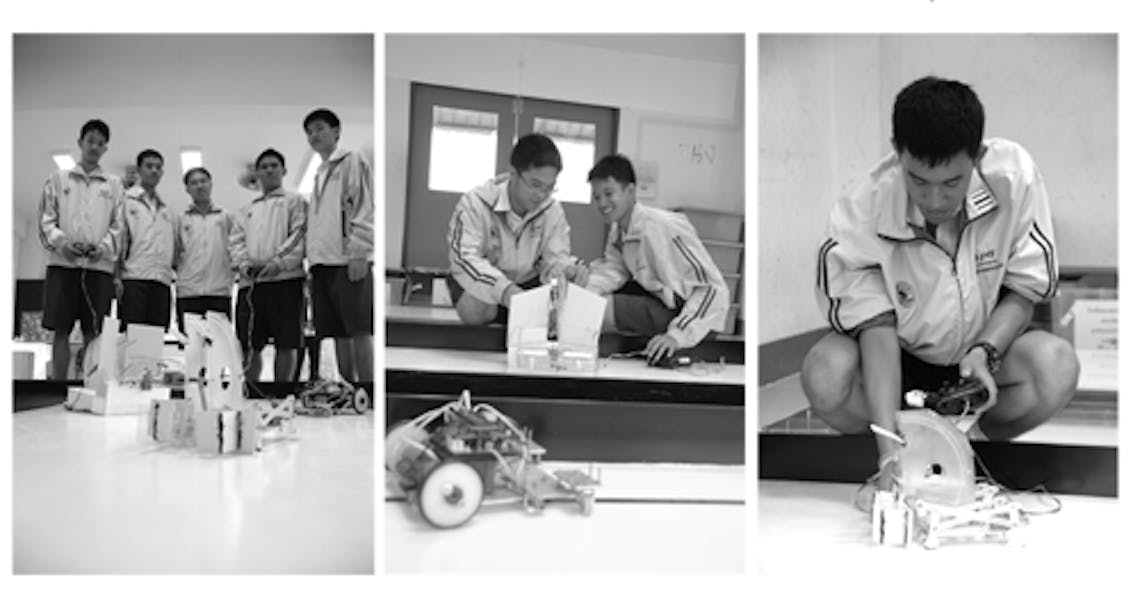The MC Robot Club room at the Montfort College echoes with the intense tapping and buzzing from an eight-legged plastic creature hectically chasing around a ping pong ball on the floor. As soon as the ball is within reach, the short robot flips out its one metal arm in a dramatic manner and flings the ball high up the air in a roundhouse kick motion. The onlookers better duck for the flying ping pong balls.
Two students won third prize at the Robotic Olympiad 2010 in Hong Kong last October with this little mechanical guy in the competition category ‘Basketball Robots’. Three of their fellow students also won third prizes, two of them with their water polo playing robot and one with his underwater garbage-collecting robot.
“When I was a student, we did very simple things like robots that could walk up a staircase or make a turn before hitting the wall. Today, the students do much more advanced things,” says Francis S. Caoile, who teaches robotics at Monfort College.
The five budding robot engineers and prize-winning students, Atiraj Phummapooti, Torpong Phawangkanon, Theppasith Nisitsukcharoen, Supawich Baisukhun and Chawakorn Sri-ngernyuang are part of a new innovative generation of robot creators.
“The study of robots involves a lot of critical thinking and problem solving skills. It might be too challenging for some, but when students are as interested in robots as these, they become really good,” says Caoile as he watches a robot on the floor use a beak the size of its body to shuffle in ping pong balls before shooting them out again with a popping sound, not unlike a hen popping out an egg in a children’s cartoon.
The need for robot experts will only increase in the years to come. Communications Chair at the recent Robo 2010 conference, professor Kontorn Chamniprasart from Suranaree University of Technology, says the Thai industry is thirsty after new robots that can work tirelessly 24 hours a day.
“We have to both reduce the cost and produce more items within the same amount of time, which is beyond the limit to what a human can do,” he says.
The robotic progress will not only reach the industrial world.
“If we go 30 years back in time, when somebody talked about every household having a computer one day, people thought that would be impossible. Now we see every home has one or more computers,” Kontorn says.
In Japan, they already have robots helping out in nursery rooms. Kontorn hopes that in something like five years, human-robot interaction will come to benefit disabled people in Thailand.
“Nowadays, disabled people have dogs that can take them somewhere, but a dog cannot talk. A robot could guide you, talk and represent you.”
